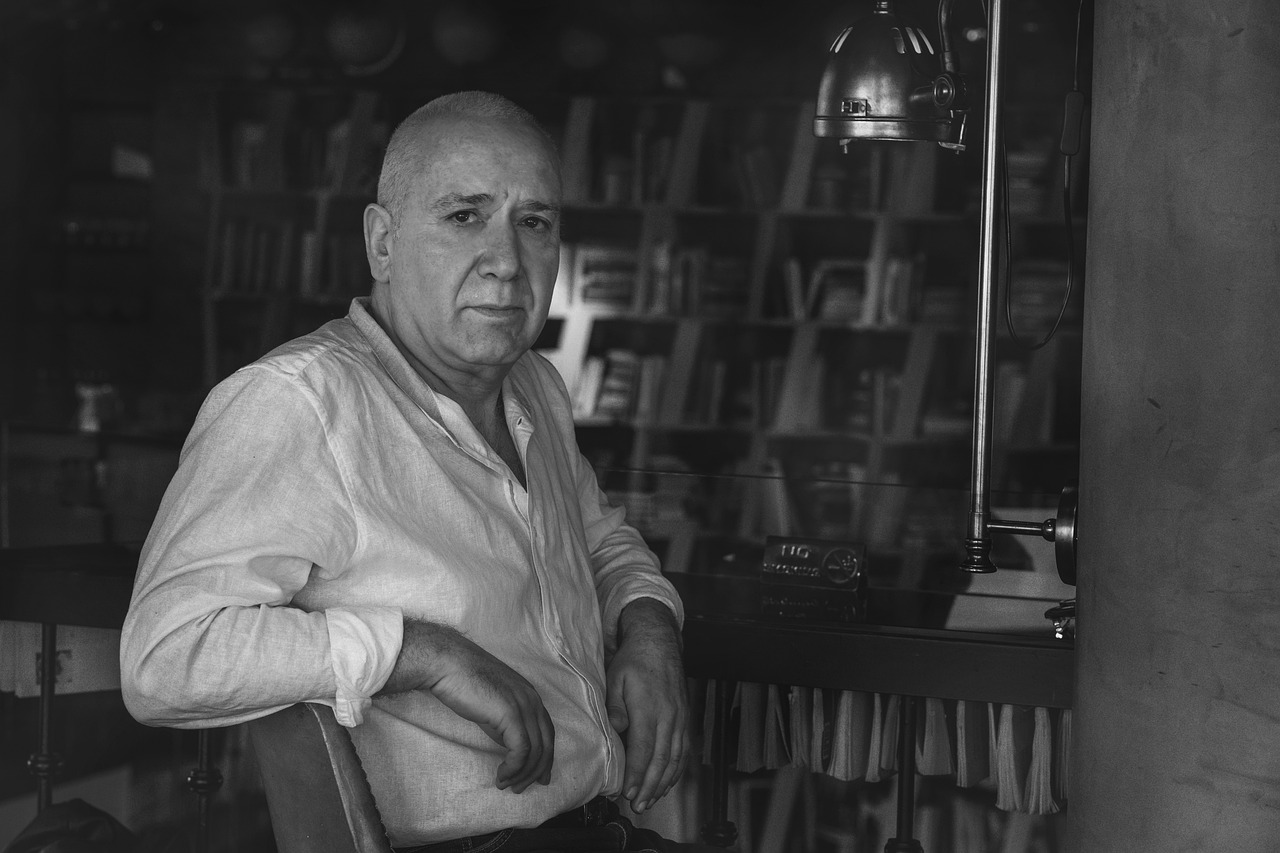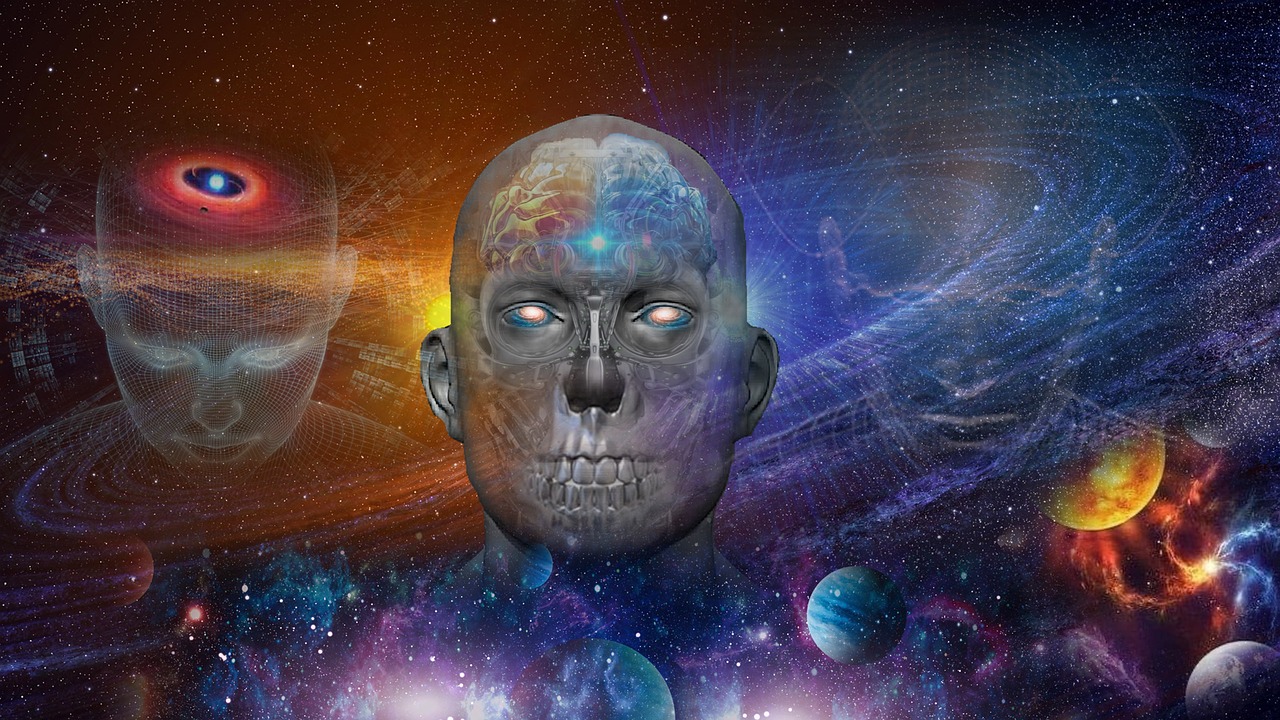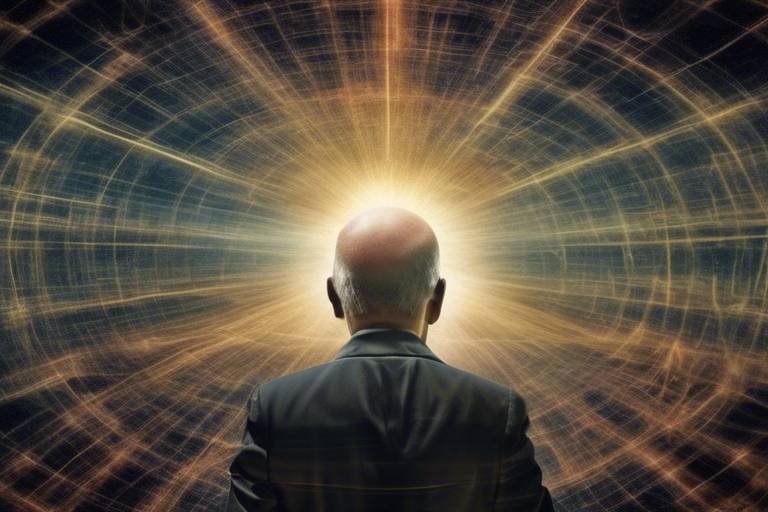Metaphysics - A Philosophical Look at Cause and Effect
Welcome to the fascinating world of metaphysics, where we dive deep into the intricate web of cause and effect that shapes our understanding of reality. You might be wondering, what exactly do we mean by cause and effect? Well, think of it this way: every action has a reaction, just like a ripple effect in a pond when you toss a stone. In metaphysics, these concepts are not just abstract ideas; they are the very framework upon which we build our understanding of existence and the universe. This article will take you on a journey through the historical evolution of these ideas, from the ancient philosophers to modern debates that challenge our perceptions.
At its core, the concept of cause and effect is about relationships. It's about understanding how one event (the cause) can lead to another event (the effect). Imagine a domino effect; when you knock over the first domino, it sets off a chain reaction that knocks over all the others. In metaphysics, this relationship is crucial because it influences how we perceive reality. Are we simply products of our environment and experiences, or do we have the power to shape our own destinies? These questions are fundamental to metaphysical inquiry.
In essence, cause and effect act as the backbone of metaphysical exploration. They compel us to ask deeper questions about existence: What is the nature of reality? How do we define existence? And importantly, what role do we play in the grand scheme of things? By examining these concepts, we can better understand not only the universe around us but also our place within it.
Throughout history, philosophers have grappled with the ideas of cause and effect, each contributing unique insights that have shaped our current understanding. From the ancient Greeks to modern thinkers, the evolution of these concepts is rich and varied. Let's take a closer look at some key figures who have left their mark on metaphysical thought.
One of the most influential figures in the realm of metaphysics is the great philosopher Aristotle. His exploration of causation laid the groundwork for centuries of philosophical inquiry. Aristotle proposed four types of causes that provide a comprehensive framework for understanding causation:
| Type of Cause | Description |
|---|---|
| Material Cause | The substance or matter from which something is made. |
| Formal Cause | The form or essence of a thing, defining its identity. |
| Efficient Cause | The agent or force that brings something into being. |
| Final Cause | The purpose or reason for which a thing exists. |
These four types of causes not only help us understand the nature of objects but also raise profound questions about existence itself. For instance, the material cause prompts us to consider what things are made of, while the formal cause challenges us to think about what defines an object's identity.
The material cause is all about the substance that makes up an object. Think of it as the ingredients in a recipe. Without the right materials, you can't create the desired dish. In metaphysical discussions, this concept influences our understanding of objects and their properties. For example, when we consider a wooden chair, the wood is its material cause. This leads us to explore questions about the nature of materials themselves and how they contribute to the identity of objects.
On the other hand, the formal cause relates to the essence or form of an object. It's like the blueprint of a building; without it, the structure would lack identity. This concept is significant in understanding how we perceive identity and existence within metaphysical frameworks. It raises questions such as: What makes something what it is? Is it merely the materials it's composed of, or is there something deeper that defines its essence?
As time has progressed, our understanding of cause and effect has evolved, particularly with advancements in science and logic. Modern philosophers have reexamined these concepts, often challenging traditional views. For instance, the rise of quantum mechanics has sparked debates about causation that were unimaginable in Aristotle's time. This shift in perspective invites us to reconsider our beliefs about reality and existence in light of new scientific discoveries.
In today's philosophical landscape, the discussion surrounding causation is vibrant and ongoing. Key debates include the tension between determinism and free will, as well as the implications of quantum mechanics for our understanding of cause and effect. These discussions not only challenge our perceptions but also invite us to question the very nature of reality.
The clash between determinism and free will raises profound questions about human agency. Are our actions predetermined by prior causes, or do we have the power to make choices that shape our destinies? This philosophical conundrum has significant implications for ethics, responsibility, and the nature of human existence.
Quantum mechanics has introduced a level of complexity to our understanding of causation that was previously unthinkable. It challenges classical notions by suggesting that events at the quantum level may not follow traditional cause-and-effect relationships. This has led to a reevaluation of metaphysical discussions and a deeper exploration of what it means to exist in a reality governed by such strange and counterintuitive laws.
- What is metaphysics? Metaphysics is a branch of philosophy that explores the fundamental nature of reality, existence, and the relationships between various entities.
- Why is cause and effect important in metaphysics? Cause and effect are crucial because they help us understand how events and phenomena are interconnected, shaping our perception of reality.
- How did Aristotle influence metaphysical thought? Aristotle's framework of four causes provided a foundational understanding of causation that has influenced philosophical inquiry for centuries.
- What modern debates exist surrounding cause and effect? Contemporary debates include discussions on determinism vs. free will and the implications of quantum mechanics on our understanding of causation.

Understanding Cause and Effect
When we dive into the realm of metaphysics, one of the first concepts that pops up is the relationship between cause and effect. But what does this really mean? In simple terms, cause and effect is the principle that everything that happens (the effect) is a result of something that came before it (the cause). Think of it as a chain reaction; when you knock over the first domino, it sets off a series of events that leads to a cascade of falling dominoes. This fundamental relationship is not just a philosophical curiosity; it shapes our understanding of reality and influences how we perceive existence itself.
At its core, the concept of cause and effect helps us make sense of our experiences. For instance, when you eat a delicious meal (the cause), you feel satisfied and happy (the effect). This straightforward example illustrates how our actions and their consequences are intertwined. However, the implications of cause and effect stretch far beyond our daily lives. They raise profound questions about the nature of reality: Is everything predetermined, or do we have the power to influence outcomes through our choices?
In metaphysical inquiry, understanding cause and effect is essential. It serves as the backbone of many philosophical discussions, helping us to explore questions about existence, identity, and the universe. This relationship not only helps us categorize events but also allows us to infer connections between them. For example, scientists use cause and effect to formulate hypotheses and conduct experiments, establishing a systematic way to understand the natural world.
To further illustrate this concept, let's consider a few examples:
- Natural Events: A thunderstorm (cause) can lead to flooding (effect). Understanding this relationship helps communities prepare for and respond to natural disasters.
- Human Actions: If a person studies hard for an exam (cause), they are likely to pass it (effect). Here, personal effort directly influences outcomes.
- Social Dynamics: A change in government policy (cause) may lead to social unrest (effect). This illustrates how interconnected societal elements are.
As we navigate through life, recognizing the patterns of cause and effect allows us to anticipate the consequences of our actions. It empowers us to make informed decisions, whether in personal relationships, career choices, or even broader societal issues. But the conversation doesn’t end here. The relationship between cause and effect also invites us to ponder deeper philosophical questions. For instance, if every effect has a cause, what does that mean for the concept of free will? Are our choices truly our own, or are they merely the results of preceding factors?
As we continue our exploration of metaphysics, the intricate dance between cause and effect will remain a central theme. It encourages us to question our assumptions and consider the broader implications of our existence. By understanding this relationship, we can gain a clearer view of the world around us and our place within it.

Historical Perspectives
The exploration of cause and effect has deep roots in philosophical thought, tracing back to ancient civilizations. Throughout history, various thinkers have sought to understand the intricate web of causation that underpins our existence. From the musings of early philosophers to the analytical rigor of modern theorists, the journey of understanding causation has been both profound and complex. This section sheds light on some of the most significant contributions to the discourse on cause and effect.
One of the earliest and most influential figures in this domain is Aristotle, whose framework for understanding causation has laid the groundwork for metaphysical inquiry. Aristotle proposed a systematic approach to causation that categorized causes into four distinct types: material, formal, efficient, and final. Each of these types provides a different lens through which to view the relationship between cause and effect, influencing not only philosophy but also the natural sciences.
Aristotle's categorization of causes has had a lasting impact on metaphysics. Let's take a closer look at his four types of causes:
| Type of Cause | Description |
|---|---|
| Material Cause | The substance from which something is made. |
| Formal Cause | The essence or form of an object. |
| Efficient Cause | The agent or force that brings something into being. |
| Final Cause | The purpose or end for which something exists. |
Each of these causes plays a crucial role in understanding why things exist as they do. For instance, the material cause raises questions about the physical properties of objects, while the formal cause delves into the essence of identity. This duality of understanding has sparked debates and discussions that continue to resonate in contemporary metaphysical thought.
As we move through history, we encounter other pivotal philosophers who have shaped the discourse on causation. David Hume, for example, challenged the traditional notions of causation by arguing that our understanding of cause and effect is rooted in habit and experience rather than rational deduction. He famously claimed that we can never observe causation directly; instead, we infer it from the regular succession of events. This perspective introduced a level of skepticism that prompted further inquiry into the nature of reality.
In the modern era, the advent of scientific advancements has further transformed our understanding of causation. The works of philosophers such as Immanuel Kant and later Gottlob Frege have prompted a reevaluation of the principles of causation, particularly in the context of logic and mathematics. The interplay between science and philosophy has led to new interpretations of how cause and effect operate within the framework of our universe.
In summary, the historical perspectives on cause and effect reveal a rich tapestry of thought that has evolved over centuries. From Aristotle’s foundational concepts to the challenges posed by Hume and the insights of modern philosophers, the discourse surrounding causation continues to be a dynamic and engaging field of study. Each thinker has contributed a unique piece to the puzzle, shaping our understanding of reality and existence in profound ways.
- What is the significance of Aristotle's four causes?
Aristotle's four causes provide a comprehensive framework for understanding the various dimensions of causation, influencing both philosophical and scientific inquiry. - How did David Hume challenge traditional notions of causation?
Hume argued that our understanding of causation is based on experience and habit rather than direct observation, introducing a level of skepticism that reshaped philosophical discussions. - What impact has modern science had on the concept of causation?
Modern science has prompted philosophers to reevaluate traditional notions of causation, leading to new interpretations influenced by advancements in logic and quantum mechanics.

Aristotle's Contribution
When we think about the foundations of metaphysics, it’s impossible to overlook Aristotle. This ancient Greek philosopher didn’t just dabble in the intricate web of cause and effect; he practically wove it into the very fabric of metaphysical thought. Aristotle introduced a framework that categorized causation into four distinct types, each shedding light on different aspects of existence and reality. By breaking down causation, he provided a lens through which we can better understand the world around us.
Aristotle's four types of causes are:
- Material Cause: This refers to the substance that makes up an object. Think of it as the raw ingredients in a recipe. Just as you need flour, sugar, and eggs to bake a cake, understanding the material cause helps us grasp what an object is made of.
- Formal Cause: This relates to the form or essence of an object. Imagine a blueprint for a house; the formal cause is what gives the house its identity. Without this essence, the material components would lack coherence.
- Efficient Cause: This is the agent or force that brings something into existence. It’s like the chef who combines the ingredients to create a cake. Without the chef, the ingredients remain just that—ingredients.
- Final Cause: This refers to the purpose or end for which an object exists. Every object has a goal or function, much like how a knife is designed to cut. Understanding the final cause provides insight into why something is the way it is.
These four causes are not just academic concepts; they have profound implications for how we interpret the nature of reality. By categorizing causation, Aristotle paved the way for future philosophers to explore the complexities of existence. His ideas challenge us to consider not only what things are made of but also why they exist in the first place. This layered understanding of causation invites us to engage in deeper philosophical inquiry, prompting questions about the very nature of being.
Furthermore, Aristotle's framework remains relevant even today. Modern philosophers and scientists often find themselves revisiting his ideas, especially in discussions about identity and change. For example, when we consider the identity of an object over time, Aristotle's formal cause becomes crucial. It raises questions like: Does an object remain the same if its material components change? This is not merely a philosophical puzzle; it resonates with real-world scenarios, such as the Ship of Theseus paradox.
In essence, Aristotle's contribution to metaphysics is like a compass guiding our exploration of cause and effect. His insights encourage us to look beyond surface-level observations and delve into the underlying principles that govern existence. As we navigate through the complexities of reality, Aristotle's framework serves as a foundational tool, helping us make sense of the intricate dance of cause and effect that shapes our understanding of the universe.
- What are Aristotle's four types of causes? Aristotle identified four types of causes: material, formal, efficient, and final causes, each explaining different aspects of an object's existence.
- How do Aristotle's ideas influence modern philosophy? His framework for understanding causation continues to inform contemporary discussions about identity, change, and the nature of reality.
- What is the significance of the formal cause? The formal cause pertains to the essence or identity of an object, raising important questions about what it means for something to exist.

Material Cause
The concept of is foundational in the study of metaphysics, shedding light on the essence of objects and their properties. Essentially, the material cause refers to the physical substance or matter that composes an entity. Think of it as the building blocks of reality; without these materials, nothing could exist in its tangible form. For example, consider a wooden table. The wood, nails, and glue are all part of its material cause, defining not just what the table is made of, but also influencing its characteristics, durability, and even its aesthetic appeal.
In metaphysical discussions, the material cause prompts us to question deeper aspects of existence. What does it mean for something to 'be'? Is the material aspect all that matters, or is there more to existence than just the physical? This inquiry leads us to contemplate the relationship between the material and the immaterial, such as ideas, emotions, and consciousness. Are these non-physical elements merely byproducts of material causes, or do they hold their own significance in the grand tapestry of reality?
Aristotle, the father of this concept, proposed that understanding the material cause is crucial for grasping the full picture of an object's existence. He believed that to comprehend any entity, one must consider not only what it is made of but also how that material interacts with its environment. This interaction can lead to changes in the object's properties over time, which is why the study of material cause is not static but dynamic.
For instance, if we think about a sculpture made from clay, the material cause is the clay itself. However, as the sculptor shapes the clay, the form and identity of the sculpture begin to emerge. This transformation raises questions about whether the material cause alone can define the essence of the sculpture or if the artist's intent and the process of creation also play critical roles. Thus, the material cause is not just about the substance; it's about how that substance is manipulated and understood within a broader context.
In contemporary metaphysical discussions, the material cause continues to be relevant, especially as we explore the implications of modern science. Advances in technology and materials science challenge our traditional notions of what constitutes an object. For example, consider the rise of synthetic materials and digital entities. Are these creations still bound by the same principles of material cause, or do they represent a new frontier in our understanding of existence? This ongoing dialogue emphasizes that the material cause is not merely a relic of ancient philosophy but a living concept that evolves alongside our understanding of the universe.
In summary, the material cause is a vital component of metaphysical inquiry, urging us to dig deeper into the nature of existence and the interplay between substance and essence. It invites us to ponder not just what things are made of, but how those materials shape our reality and understanding of the world around us.
- What is the significance of material cause in metaphysics?
Material cause is essential because it helps us understand the physical composition of objects and how that influences their identity and properties. - How does material cause relate to modern science?
Modern science challenges traditional notions of material cause by introducing concepts like synthetic materials and digital entities, prompting a reevaluation of what constitutes 'material.' - Can material cause exist without immaterial aspects?
While material cause focuses on physical substance, many philosophers argue that immaterial aspects, such as ideas and consciousness, are equally important in defining existence.

Formal Cause
The concept of is one of the cornerstones of Aristotelian metaphysics, providing a crucial lens through which we can understand the essence of objects and their existence. While the material cause addresses what something is made of, the formal cause delves deeper into the identity and structure of that object. In simpler terms, if the material cause answers the question "What is it made of?", the formal cause answers "What is it?" This distinction is vital because it allows us to explore not just the physical attributes of an object, but also its inherent nature and purpose.
To illustrate, consider a sculpture made from marble. The marble itself represents the material cause, while the artistic design and concept behind the sculpture embody the formal cause. The artist's vision—what they intended the sculpture to represent—shapes our understanding of the piece far beyond its physical form. This relationship between form and essence invites us to ponder deeper philosophical questions: What does it mean for something to exist? How do we define the essence of an object in a world where forms can change yet the identity remains? These inquiries form the basis of many metaphysical discussions.
Furthermore, the formal cause plays a significant role in categorizing and understanding the world around us. Through this lens, we can categorize objects and beings into various classes based on their essence. For example, when we think about living beings, we can identify their formal cause as the essence of life itself, which includes various characteristics such as growth, reproduction, and response to stimuli. This classification helps us navigate our understanding of existence, allowing us to make sense of the diversity of life and the universe.
In contemporary metaphysics, the idea of formal cause also intersects with discussions about identity and change. As objects undergo transformations, their material composition might alter, yet their formal essence can remain intact. This brings us to the philosophical problem of identity over time. For instance, if a tree is cut down and turned into paper, we face the question: Is the paper still a part of the tree’s identity? The formal cause suggests that the essence of the tree—a living organism—has changed fundamentally, even if some material remains. Such discussions highlight the dynamic nature of existence and challenge our perceptions of what it means to be.
In conclusion, the formal cause is not merely an abstract concept but a vital element in understanding the complexities of existence and reality. It invites us to explore deeper meanings, encouraging us to question the very nature of the objects and beings we encounter daily. By grasping the significance of formal cause, we can gain profound insights into the world around us and our place within it.
- What is the difference between formal cause and material cause?
The formal cause pertains to the essence or identity of an object, while the material cause refers to the substance from which it is made. Together, they provide a comprehensive understanding of an object's existence.
- How does formal cause relate to identity?
Formal cause helps define the identity of an object by exploring its inherent characteristics and purpose, regardless of changes in its material composition.
- Can the formal cause change over time?
While the material aspects of an object may change, the formal cause, or its essence, can also evolve, leading to discussions about identity and transformation.

Modern Interpretations
In the realm of metaphysics, the understanding of cause and effect has undergone significant transformations, particularly in the wake of modern scientific advancements. Today, philosophers grapple with the implications of these changes, leading to a rich tapestry of interpretations that challenge traditional notions. At the heart of these modern interpretations lies a fundamental shift from a deterministic view of causation to one that embraces complexity and uncertainty.
One of the most profound changes in our understanding of causation comes from the field of quantum mechanics. Unlike classical physics, where cause and effect follow a linear path, quantum mechanics introduces a level of unpredictability that has left many philosophers reeling. For instance, the famous double-slit experiment demonstrates that particles can behave as both waves and particles, depending on whether they are observed. This observation raises questions about the role of the observer and whether consciousness itself plays a part in shaping reality. It's as if the universe is saying, "Hey, things aren't as straightforward as you thought!"
Moreover, modern interpretations also consider the implications of chaos theory. This branch of mathematics reveals how small changes in initial conditions can lead to vastly different outcomes, suggesting that causation is not always linear or predictable. Imagine a butterfly flapping its wings in Brazil, which ultimately leads to a tornado in Texas. This metaphor highlights the interconnectedness of events and the complexity of cause and effect in both natural and social phenomena.
Philosophers like David Hume and Immanuel Kant have also influenced contemporary thought by challenging the very nature of causation. Hume famously argued that causation is not something we can observe directly; rather, it is a habit of thought based on the regular succession of events. Kant, on the other hand, posited that causation is a necessary condition for our understanding of the world, suggesting that our minds impose a structure on reality itself. These debates continue to resonate, as modern thinkers explore how our perceptions shape our understanding of cause and effect.
In addition to these philosophical inquiries, the influence of neuroscience cannot be overlooked. As we delve deeper into the workings of the brain, we uncover layers of complexity that challenge our understanding of free will and determinism. If our thoughts and actions are the result of neural processes, to what extent are we truly in control? This question has sparked a lively debate among philosophers, scientists, and ethicists alike, pushing the boundaries of what we consider to be causation.
Ultimately, modern interpretations of cause and effect reflect a broader shift in our understanding of reality itself. As we navigate through the complexities of quantum mechanics, chaos theory, and neuroscience, we are confronted with the idea that causation may not be as clear-cut as we once believed. Instead, it invites us to embrace uncertainty and to recognize that our perception of reality is shaped by a myriad of factors, both seen and unseen. In this light, the relationship between cause and effect becomes a dynamic interplay rather than a rigid structure, encouraging us to explore the depths of existence with an open mind.
- What is the significance of modern interpretations of cause and effect?
Modern interpretations challenge traditional views, incorporating insights from quantum mechanics, chaos theory, and neuroscience, highlighting complexity and uncertainty in causation. - How does quantum mechanics influence our understanding of causation?
Quantum mechanics introduces unpredictability, suggesting that observation can affect outcomes, which complicates the classical view of linear causation. - What role do philosophers like Hume and Kant play in modern discussions?
Hume questioned the direct observation of causation, while Kant argued that causation is essential for understanding reality, both contributing to ongoing debates in metaphysics.

Contemporary Debates
The realm of metaphysics is far from stagnant; it is a vibrant battlefield where ideas clash and evolve. In contemporary philosophy, the discussion surrounding cause and effect has taken on new dimensions, particularly with the advent of modern science and its implications for our understanding of reality. One of the most tantalizing debates centers on the concepts of determinism and free will. Are our actions predetermined by a chain of prior events, or do we possess the autonomy to shape our own destinies? This question is not merely academic; it strikes at the very core of what it means to be human and to live in a world governed by laws of nature.
Determinism posits that every event, including human actions, is the result of preceding causes. Imagine a vast, intricate machine where every gear and cog is set in motion by the ones before it. In this view, our choices are merely the output of a complex web of prior conditions. On the other hand, proponents of free will argue that individuals can exercise control over their actions, akin to a driver navigating through traffic, making choices that can diverge from a predetermined path. This dichotomy raises profound questions about morality, responsibility, and the nature of existence itself.
In addition to these philosophical debates, the emergence of quantum mechanics has further complicated our understanding of causation. Classical physics operated under the assumption that the universe functions like a clockwork mechanism, where every event can be traced back to a preceding cause. However, quantum mechanics introduces an element of unpredictability. Particles can exist in multiple states simultaneously until observed, leading to the idea that not everything is predetermined. This challenges the classical notion of causality and suggests that the universe may be more chaotic and less deterministic than previously thought.
To illustrate the contrast between classical and quantum perspectives on causation, consider the following table:
| Aspect | Classical Physics | Quantum Mechanics |
|---|---|---|
| Causation | Linear and predictable | Probabilistic and uncertain |
| Nature of Events | Deterministic | Indeterminate |
| Observation | Does not affect outcomes | Influences state of particles |
This shift in understanding has not only philosophical implications but also practical ones, as it forces us to reconsider how we view events in our lives. Are we merely passengers on a predetermined journey, or do we have the power to steer our own course? These questions resonate deeply, affecting everything from ethics to personal identity.
As we navigate these contemporary debates, it is essential to acknowledge that the discourse around cause and effect is not merely academic. It shapes our understanding of existence, influences our moral frameworks, and ultimately impacts how we live our lives. The interplay between determinism, free will, and the insights from quantum mechanics continues to challenge our perceptions, urging us to explore deeper into the very fabric of reality.
- What is determinism? Determinism is the philosophical idea that every event or action is the result of preceding events, implying that everything is predetermined.
- What is free will? Free will is the ability to make choices that are not solely determined by prior causes, suggesting that individuals can influence their own actions.
- How does quantum mechanics affect our understanding of causation? Quantum mechanics introduces elements of unpredictability, challenging the classical notion that every event has a clear cause.
- Why are these debates important? They shape our understanding of morality, responsibility, and the nature of existence, affecting how we perceive our lives and decisions.

Determinism vs. Free Will
The debate between determinism and free will is one of the most captivating discussions in metaphysics, stirring the minds of philosophers, scientists, and curious individuals alike. At its core, this debate questions whether our actions are predetermined by prior events or if we possess the freedom to choose our paths. Imagine standing at a crossroads, with one path representing a future dictated by the laws of nature, while the other symbolizes the power of individual choice. Which route do you take? This metaphor encapsulates the essence of the conflict, drawing us into the depths of human agency and moral responsibility.
Determinism posits that every event or action is the outcome of preceding events, governed by the laws of nature. This perspective suggests that if we had complete knowledge of all conditions at a given moment, we could predict the future with absolute certainty. In contrast, the notion of free will asserts that individuals have the capacity to make choices independent of external influences. This belief in agency raises a multitude of questions: If our decisions are truly free, how do we account for the myriad of factors that shape our thoughts and actions? Are we merely products of our environment, or do we possess an intrinsic ability to forge our destinies?
To better understand this complex interplay, let's break down some key points surrounding the debate:
- Determinism: This philosophy is often associated with a mechanistic view of the universe, where everything operates like clockwork. Think of it as a well-oiled machine; every cog and gear has its place, and when one moves, it inevitably affects the others.
- Free Will: Advocates of free will argue for the existence of personal agency. They believe that even in a world influenced by external factors, individuals can still exercise choice, akin to a painter who decides how to wield their brush on a canvas.
- Compatibilism: Some philosophers propose a middle ground known as compatibilism, which suggests that free will and determinism can coexist. This view posits that our choices can be both influenced by prior events and still be considered free if they align with our desires and intentions.
The implications of this debate extend beyond philosophical musings; they touch on ethics, law, and our understanding of personal responsibility. If determinism holds true, can we fairly hold individuals accountable for their actions? Alternatively, if free will is genuine, how do we navigate the overwhelming influences of genetics, upbringing, and societal pressures that shape our decisions?
Moreover, the advent of quantum mechanics introduces a layer of complexity to this discourse. In the quantum realm, events can appear random and unpredictable, challenging the deterministic view. Could this randomness imply that free will has a foothold in our reality? As we grapple with these profound questions, we find ourselves at the intersection of science and philosophy, where the quest for understanding continues to evolve.
- What is determinism? Determinism is the philosophical belief that all events, including human actions, are determined by previously existing causes.
- What is free will? Free will is the idea that individuals can make choices that are not determined by prior events or external forces.
- Can determinism and free will coexist? Some philosophers argue for compatibilism, suggesting that free will can exist within a deterministic framework.
- How does quantum mechanics influence this debate? Quantum mechanics introduces elements of randomness, which some argue could support the existence of free will.

Quantum Mechanics and Causation
When we step into the realm of quantum mechanics, we enter a world that seems to defy our traditional understanding of cause and effect. In classical physics, causation is straightforward: one event leads to another in a predictable manner. However, quantum mechanics throws a wrench into this neat framework. Imagine tossing a coin; in classical terms, you can predict its outcome based on how you throw it. But in the quantum world, things become much more uncertain. The coin can be both heads and tails until you observe it. This phenomenon is known as superposition, and it challenges our very notions of causation.
One of the most mind-boggling implications of quantum mechanics is encapsulated in the famous double-slit experiment. When particles like electrons are fired at a barrier with two slits, they create an interference pattern, suggesting they behave like waves. However, if we try to measure which slit the electron passes through, the interference pattern disappears, and the electrons behave like particles. This leads to the question: does the act of observation change the outcome? Are we, as observers, influencing reality? This idea suggests that causation in the quantum realm is not as clear-cut as we once believed.
Furthermore, the concept of entanglement introduces another layer of complexity. When two particles become entangled, the state of one instantly influences the state of the other, regardless of the distance separating them. This phenomenon raises profound questions about locality and causation. If a change in one particle can instantaneously affect another, how do we understand the chain of cause and effect that we take for granted in our everyday lives?
To illustrate these concepts, consider the following table that summarizes key differences between classical and quantum causation:
| Aspect | Classical Causation | Quantum Causation |
|---|---|---|
| Predictability | Highly predictable | Uncertain and probabilistic |
| Observation | Does not affect outcome | Influences the result |
| Locality | Events are local | Non-local interactions (entanglement) |
These insights from quantum physics not only challenge our philosophical understanding of causation but also compel us to rethink the nature of reality itself. Are we merely observers in a vast, interconnected web of existence, or do we play an active role in shaping the outcomes of our universe? As we grapple with these questions, it becomes clear that the relationship between quantum mechanics and causation is a dynamic and evolving field of inquiry.
- What is quantum mechanics?
Quantum mechanics is the branch of physics that deals with the behavior of very small particles, such as atoms and photons, where traditional laws of physics do not apply. - How does quantum mechanics challenge classical causation?
Quantum mechanics introduces uncertainty and probabilistic outcomes, suggesting that observation can affect the state of a system, which is contrary to classical deterministic views. - What is entanglement?
Entanglement is a quantum phenomenon where two particles become linked, such that the state of one instantaneously influences the state of the other, regardless of the distance between them.
Frequently Asked Questions
-
What is metaphysics?
Metaphysics is a branch of philosophy that explores the fundamental nature of reality, existence, and the relationship between cause and effect. It seeks to answer questions about what things are, why they exist, and how they relate to one another.
-
How do cause and effect relate to metaphysics?
Cause and effect are central concepts in metaphysics as they help us understand how events are interconnected. They form the backbone of metaphysical inquiry, influencing our perception of reality and the nature of existence.
-
Who were the key philosophers in the study of cause and effect?
Throughout history, many philosophers have contributed to our understanding of cause and effect. Notably, Aristotle's framework for causation laid the groundwork for metaphysical thought, while modern philosophers have expanded on these ideas, especially in light of scientific advancements.
-
What are Aristotle's four types of causes?
Aristotle identified four types of causes: material, formal, efficient, and final. Each type provides a different perspective on why things exist and how they come to be, influencing metaphysical discussions about identity and existence.
-
What is the difference between determinism and free will?
Determinism posits that all events, including human actions, are determined by preceding causes, while free will suggests that individuals have the ability to choose their actions independently. This tension raises profound questions about human agency and responsibility.
-
How does quantum mechanics challenge classical notions of causation?
Quantum mechanics introduces complexities that challenge traditional views of causation, suggesting that events may not always follow a linear cause-and-effect relationship. This has significant implications for our understanding of reality and has sparked ongoing philosophical debates.
-
Why is understanding cause and effect important?
Understanding cause and effect is crucial because it shapes our worldview and influences how we interpret experiences. It helps us make sense of the world, informs our decision-making, and underpins many scientific and philosophical inquiries.



















